Today’s Current Affairs: 26th June 2025 for UPSC IAS exams, State PSC exams, SSC CGL, State SSC, RRB, Railways, Banking Exam & IBPS, etc
Table of Contents
Passport Seva Portal:
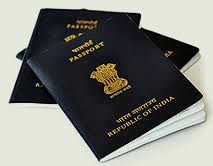
The Passport Seva Portal experienced widespread server issues recently, disrupting operations at Passport Seva Kendras (PSKs) across India.
- Passport Seva Portal established by the Ministry of External Affairs (MEA) in partnership with Tata Consultancy Services, the Passport Seva portal is an excellent example of a Public-Private Partnership.
- It simplifies the passport application and renewal process in India.
- Through this portal, individuals can quickly apply for a passport or its renewal from the convenience of their homes.
- It is a user-friendly portal providing access to various passport services online.
- The MEA has retained sovereign functions like verification, granting, and issuance of a passport as well as ownership of core assets, including data and information of the applicants.
- The portal offers complete information regarding the documents required and the process to be followed for obtaining any of the documents mentioned above. You can complete these steps online.
- But in some instances, you will be required to take a printout of the application form, book an appointment, and then visit your nearest Passport Seva Kendra.
- To be able to use the facilities made available under Passport Seva, it is mandatory to register for Passport Seva Online first.
Tawi River : Nine men were rescued
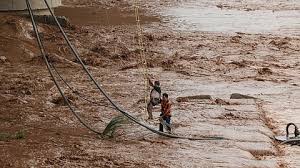
Nine men were rescued recently in a joint operation by police and SDRF teams after they were trapped in the Tawi river following a sudden rise in the water level due to rains.
- Tawi River is a major left-bank tributary of the Chenab River and an important river in the Jammu region.
- It is considered sacred and holy. The Tawi River is also called “Surya Putri” in ancient texts.
- The Tawi rises from Kalpas Kund of Seo Dhar in the Bhaderwah in the Doda district of Jammu and Kashmir, then descends to Sudh Mahadev.
- Spanning approximately 141 kilometers, it traverses steep hills and plains before entering Pakistan’s Punjab province and merging with the Chenab
- The catchment area of the river up to the Indian border (Jammu) is 2168 sq.km. and falls in the districts of Jammu, Udhampur, and a small part of Doda.
- On the way, many tributaries such as Bhuteshwari (Birma), Duddhar, Jajjhar, etc., join this river.
Chemotherapy : Recent Study

A landmark study published recently has reported that about a fifth of chemotherapy drugs tested failed quality tests; 16 of the 17 implicated manufacturers are India-based.
- Chemotherapy is a treatment that uses medicines to destroy cancer cells.
- There are many different types of chemo. They don’t all work exactly the same way, so different types of chemo might be used for different types of cancer.
- Most are given as an infusion into a vein (IV), but some are given as an injection, taken as pills, or applied to the skin.
- Chemo is a systemic treatment.
- It travels through the bloodstream to reach all parts of your body.
- It can kill cancer cells that have spread (metastasized) to parts of the body far away from the original (primary) tumor or cancer cells in blood cancers, such as leukemia, that have spread throughout the body.
- This makes chemo different from local treatments like surgery and radiation, which only affect one part of the body.
Kappatagudda Wildlife Sanctuary:
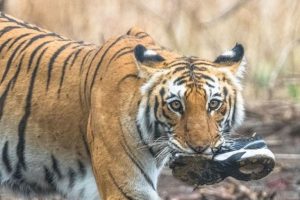
The Union Government recently issued the final notification declaring the Eco Sensitive Zone (ESZ) around the Kappatagudda Wildlife Sanctuary, marking the culmination of a decade-long movement to protect the ecologically rich region in arid north Karnataka.
- Kappatagudda Wildlife Sanctuary is located in the Gadag district of Karnataka.
- It spans over 244.15 sq.km.
- The sanctuary features diverse habitats—dry deciduous forests, grasslands, scrublands, and riverine zones—earning it the nickname “Western Ghats of North Karnataka”.
- The sanctuary’s historical significance traces back centuries, evident in the remnants of ancient temples and ruins that dot the hillsides.
- These structures are adorned with intricate carvings and tell tales of dynasties that once ruled the land, such as the Chalukyas and Rashtrakutas.
- Moreover, the architectural marvels strewn across Kappatagudda, such as the Kappatagudda Jain Basadi, Brahma Jinalaya, Trikuteshwara Temple, and the Dambala Temple, stand testament to the craftsmanship and religious diversity of the region.
- The sanctuary supports diverse vegetation typical of dry-scrub and deciduous ecosystems.
- The forest has about 400 medicinal plant species.
- Carnivores such as gray wolves, striped hyenas, leopards, and golden jackals are in good numbers.
- Small carnivores such as jungle cats, rusty-spotted cats, small Indian civets, common palm civets, ruddy mongooses, and Indian gray mongooses also exist.
Black Mass Recovery Technology:
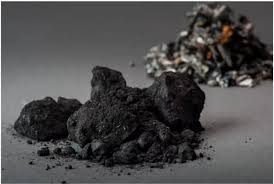
The Technology Development Board (TDB), Department of Science & Technology (DST), Government of India, has extended financial support for commercialisation of Indigenous Battery Recycling Technology.
- Black Mass Recovery Technology is designed to extract battery-grade lithium, cobalt, nickel and manganese from end-of-life lithium-ion batteries.
- Its dual-mode (wet and dry) black mass recovery technology ensures high separation efficiency and recovery rates of up to 97–99%.
- The end-to-end process, including collection, shredding, metal leaching, and downstream purification, is indigenously developed and patented, significantly reducing reliance on imported recycling equipment.
- It seeks to minimize import of critical minerals by recycling already available ones within the country.
- The recovered battery-grade compounds—such as lithium carbonate and cobalt sulphate—meet global specifications and will cater to both domestic consumption and exports.
Leptospirosis:
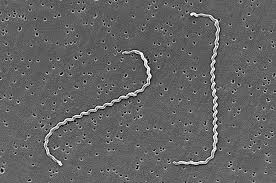
Five persons have infected to leptospirosis in Ernakulam, Kerala over the past three weeks.
- Leptospirosis is a potentially fatal zoonotic bacterial disease.
- The disease is caused by a bacterium called Leptospira interrogans, or Leptospira.
- The disease causing bacteria is found in the urine of animals such as rats, cattle, and dogs.
- The bacteria can infect humans by entering the body through tiny cracks and wounds in the soles of the feet.
- It is more prevalent in warm, humid countries and both urban and rural areas.
- It is a contagious disease in animals but is occasionally transmitted to humans in certain environmental conditions.
- The carriers of the disease can be either wild or domestic animals, including rodents, cattle, pigs, and dogs.
- The cycle of disease transmission begins with the shedding of leptospira, usually in the urine of infected animals.
- According to the U.S. Centres for Disease Control and Prevention, infected animals can continue to excrete the bacteria into their surroundings for a few months, but sometimes up to several years.
- Leptospirosis may occur in two phases: After the first phase (symptoms: fever, chills, headache, muscle aches, vomiting, or diarrhoea) the patient may recover for a time but become ill again.
- If a second phase occurs, it is more severe; the person may have kidney or liver failure or meningitis.
- Treatment: It can be treated with antibiotics.
Integrated Biodiversity Assessment Tool Alliance:

The Integrated Biodiversity Assessment Tool (IBAT) Alliance announced that its 2024 investment in biodiversity data reached a record level of $2.5 million an increase from $1.2 million in 2023.
- Integrated Biodiversity Assessment Tool Alliance was founded in 2008 as collaboration between four of the world’s largest and most influential conservation organizations.
- The four organisations that form part of the Alliance are: BirdLife International, Conservation International, the International Union for Conservation of Nature and the United Nations Environment Programme World Conservation Monitoring Centre.
- IBAT has been a trusted resource for organizations worldwide, supporting the private sector, governments, not-for-profits, and research institutions in making informed biodiversity decisions for nearly two decades.
- It licences commercial access to the IBAT platform – the world’s most authoritative biodiversity data platform, providing trusted data to assess biodiversity risks and align with global frameworks to support nature-positive goals.
- It provides datasets which are the World Database of Protected Areas (WDPAs), World database of Key Biodiversity Areas (WDKBA) and the IUCN Red list of Threatened Species.
- It also provides derived datasets – the Rarity-Weighted Richness layer and Species Threat Abatement and Restoration or STAR metric.
- The IBAT platform provides unique access to these datasets and layers helping to inform your world-leading biodiversity decisions.
- It is supported by a network of conservation and scientific expertise.
- This collaboration ensures IBAT provides the gold standard in biodiversity data, helping organizations navigate sustainability challenges with confidence.
- It is headquartered in Cambridge, UK.
International Potato Centre:
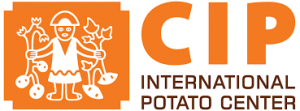
The Union Cabinet has approved a proposal from the Department of Agriculture & Farmers Welfare to establish the International Potato Centre (CIP)’s South Asia Regional Centre (CSARC) at Agra, Uttar Pradesh.
- International Potato Centre was founded in 1971 as a research-for-development organization with a focus on potato, sweet potato and Andean roots and tubers.
- It delivers innovative science-based solutions to enhance access to affordable nutritious food, foster inclusive sustainable business and employment growth, and drive the climate resilience of root and tuber agri-food systems.
- CIP is a CGIAR research center, a global research partnership for a food-secure future. CGIAR science is dedicated to transforming food, land and water systems in a climate crisis.
- Its research is carried out by 13 CGIAR Centers/Alliances in close collaboration with hundreds of partners, including national and regional research institutes, civil society organizations, academia, development organizations and the private sector.
- Headquarter: It is in Lima, Peru and it has a research presence in more than 20 countries in Africa, Asia and Latin America.
- The India centre will not only serve domestic farmers, but those in other South Asian countries as well.
- India is the world’s second top producer and consumer of potato
- Major potato growing States: Uttar Pradesh, West Bengal, Bihar, Gujarat, Madhya Pradesh and Punjab.
Global Science-Policy Panel on Chemicals, Waste, and Pollution:
The Global Science-Policy Panel on Chemicals, Waste, and Pollution has been established at Punta del Este, Uruguay, under the UN Environment Programme (UNEP). This panel complements the IPCC (climate change) and Intergovernmental Science-Policy Platform on Biodiversity and Ecosystem Services (IPBES) (biodiversity), forming a trifecta of intergovernmental science-policy bodies that address the triple planetary crisis (climate change, biodiversity loss, and pollution).It fills a key gap in global environmental governance by focusing specifically on pollution and waste.It aims to strengthen global efforts in tackling pollution, managing hazardous chemicals and waste, and safeguarding environmental and human health through evidence-based policymaking.
MSC Certification for Chilka Lake’s Mud Crab Fishery:
To boost India’s inland fisheries, a joint initiative led by ICAR-CIFRI (Central Inland Fisheries Research Institute) and Chilika Development Authority (CDA) aims to secure Marine Stewardship Council (MSC) certification for Chilika Lake’s mud crab fishery. The Marine Stewardship Council (MSC) is an international non-profit organisation promoting sustainable fishing through its eco-label and certification programme. MSC certification is a globally recognised eco-label for wild-capture fisheries that ensure sustainable fish stocks, low environmental impact, and adaptive, effective management. It promotes responsible fishing to secure healthy oceans and sustainable seafood for future generations. The certification enhances export value, supports biodiversity conservation, and ensures livelihood security. The Chilika mud crab is India’s first inland fishery nominated for MSC’s sustainability certification.
International Day Against Drug Abuse and Illicit Trafficking 2025:
The Ministry of Social Justice and Empowerment (MoSJE) organized a national event On 26th June 2025, to commemorate the International Day against Drug Abuse and Illicit Trafficking (World Drug Day).It was declared by the UN General Assembly in 1987 to promote global cooperation for a drug-free world. The 2025 theme, “Break the Cycle. #StopOrganizedCrime,” calls for long-term, targeted action against organized drug networks.According to the United Nations Office on Drugs and Crime (UNODC), 292 million people used drugs globally in 2022, marking a 20% increase over the past decade and highlighting growing global concern.
Cloudbursts in Kangra and Kullu districts of Himachal Pradesh:
Cloudbursts in Kangra and Kullu districts of Himachal Pradesh triggered devastating flash floods, killing two people and leaving over a dozen missing.A cloudburst is a sudden, highly intense rainfall event, releasing ≥100 mm of rain in under one hour over a localized area (~10 km²). These events often occur over hilly or mountainous regions, triggering flash floods, landslides, and infrastructural damage.Moist air from monsoon winds hits the windward slope of mountains (e.g., Himalayas).This causes adiabatic cooling and condensation, forming towering cumulonimbus clouds up to 15–21 km high. Under unstable atmospheric conditions, rapid cloud formation overwhelms the area’s drainage capacity. The result is intense downpours over small regions, sometimes exceeding 2 billion litres/hour over 20 km², causing flash flooding and debris flows.
Zero-Dose Children:
India ranked second after Nigeria in the number of unvaccinated or “zero-dose” children in 2023, according to a new Lancet study based on Global Burden of Disease data. The term “zero-dose children” refers to children who did not receive even a single dose of any routine childhood vaccination.
In 2023, 1.44 million Indian children fell into this category.India is second globally (after Nigeria’s 2.5 million) in total number of zero-dose children. These unvaccinated children are primarily located in eight countries, which collectively host over 50% of the global burden. The Universal Immunisation Programme (UIP) in India covers 12 diseases, yet implementation gaps persist.
UN80 Initiative:
The United Nations Secretary-General António Guterres unveiled the UN80 Initiative to reform and revamp the UN system ahead of the Charter’s 80th anniversary. The UN80 Initiative is a comprehensive reform drive across the UN system to align its structures, mandates, and operations with 21st-century challenges. Launched by: UN Secretary-General António Guterres.Objective is to modernize the UN system, enhance accountability, reduce duplication, and ensure it delivers effectively on peace, development, and human rights.
RBI has reduced the Priority Sector Lending target for Small Finance Banks:
The Reserve Bank of India (RBI) has reduced the Priority Sector Lending (PSL) target for Small Finance Banks (SFBs) from 75% to 60% to enhance lending flexibility and profitability.RBI’s revised PSL norms aim to ease lending restrictions for SFBs, allowing them to diversify and improve asset quality.
Old PSL Criteria: SFBs were mandated to allocate 75% of their Adjusted Net Bank Credit (ANBC) to PSL, which led to challenges in sourcing quality borrowers and lower margins.
New PSL Criteria:
Overall PSL target reduced from 75% to 60%.
The additional PSL component reduced from 35% to 20%.
SFBs still required to maintain 40% ANBC towards specific PSL sub-sectors.
Banakacherla Project:
A new inter-state water conflict has emerged between Telangana and Andhra Pradesh over the Banakacherla reservoir project, with Telangana alleging violation of the Andhra Pradesh Reorganisation Act, 2014. The Banakacherla Reservoir Project is a proposed irrigation infrastructure by the Andhra Pradesh government aimed at diverting surplus Godavari River water to address drought conditions in Rayalaseema. Location: Banakacherla, Nandyal district, Andhra Pradesh , The project plans to channel water from the Godavari via the Krishna River system. States Involved: Andhra Pradesh (Project implementing state) and Telangana (Objecting state).




